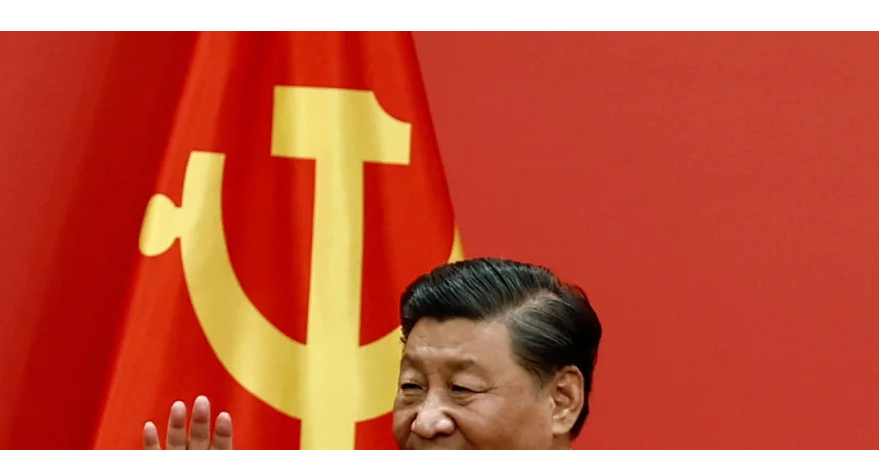
China’s New Image Makeover Bid
China’s new Group of Friends Global Development Initiative (GDI) is another attempt to build up its influence in developing countries, a move necessitated by the Belt and Road Initiative’s decelerating momentum. It is also a calibrated attempt to refurbish its global image sullied by accusations of debt traps, colonialism, ecological issues, and poor standards under the BRI.
China is propagating the GDI as a China-led win-win economic cooperation as against US-led zero-sum alliance-building.
The GDI shows China’s intent to be a global leader in development cooperation on its own terms and attempt to project itself as a soft power in the developing world, thereby reinforcing Chinese influence. China has framed its role and responsibility in the GDI as that of a developing country working in solidarity with other Global South countries to mitigate issues like climate change.
With the GDI, China is seeking to use its global engagement to support its domestic economic agenda of sustainable, inclusive and innovation-driven growth. With its economy slowing, China no longer has the means to splurge its money on initiatives like the BRI.
Hence, the Chinese leadership is now focusing on delivering quality projects with real benefits to GDI recipients by forming the Friends Group. It allows China to spend less of its own capital for development projects, while maintaining a third-country presence.
China is apparently seeking to use the GDI as a diplomatic and economic tool to rally small developing countries in a broad coalition to support its global vision as world leader and undermine Western, particularly American influence and leadership in the global governance system.
China seems to have gauged some poor countries’ anger over the West’s failure to do more to deliver Covid vaccines to them.
Under the GDI, China’s vision is to use debt and trade for economic opportunities for itself in the developing world.
Countries that have failed to find a way out of poverty are being offered wealth and goods in an apparent attempt by China to have hegemony over governance in these countries.
SHIFTING PRIORITIES
After years of excessive overseas lending under the BRI for big infrastructure projects, China is shifting its priority to small-sized projects in areas as public health, poverty reduction, green and low-carbon economy, digital industry and innovation under the GDI due to its domestic economic distress, repayment problems and the low economic returns on its foreign loans and accumulation of unsustainable debts.
As action on climate change is being pursued seriously, China needs a global market to export its green energy manufacturing capacity, such as solar panels, for greater cost efficiency.
Countries are also looking for support to build resilience against climate-driven natural disasters and other growing threats. In this regard, China has already created the China-Pacific Island Countries Climate Action Cooperation Centre to help these countries mitigate the damage from climate change.
WAKE UP CALL
The GDI should be recognized as a challenge and a wake-up call for the Western donors and development financiers.
The Western world and other countries like India need to step up to alleviate the proliferation of Chinese ideology in the developing world. These countries and multilateral institutions will have to provide better terms and conditions for business than China so that China is not seen as a better business partner.
China is leveraging the GDI to tap into the discontent among developing countries who feel that the US and Europe are devoting too much attention and resources to the war in Ukraine at the expense of their development needs.
Many poor countries, desperate for help after being hammered by Covid, may regard China as filling the void left by Western donors as they focus on the crisis in Ukraine. Experts warn that if countries become part of the Chinese led GDI, they risk adopting Chinese model of development of an autocratic state that fails to observe human rights.
—By TEAM POREG
-
CHINA DIGEST
-
 ChinaChina Digest
China’s PMI falls for 3rd month highlighting challenges world’s second biggest economy faces
ChinaChina Digest
China’s PMI falls for 3rd month highlighting challenges world’s second biggest economy faces
-
 ChinaChina Digest
Xi urges Chinese envoys to create ‘diplomatic iron army’
ChinaChina Digest
Xi urges Chinese envoys to create ‘diplomatic iron army’
-
 ChinaChina Digest
What China’s new defense minister tells us about Xi’s military purge
ChinaChina Digest
What China’s new defense minister tells us about Xi’s military purge
-
 ChinaChina Digest
China removes nine PLA generals from top legislature in sign of wider purge
ChinaChina Digest
China removes nine PLA generals from top legislature in sign of wider purge
-
-
SOUTH ASIAN DIGEST
-
 South Asian Digest
Kataragama Kapuwa’s arrest sparks debate of divine offerings in Sri Lanka
South Asian Digest
Kataragama Kapuwa’s arrest sparks debate of divine offerings in Sri Lanka
-
 South Asian Digest
Nepal: Prime Minister Dahal reassures chief ministers on police adjustment, civil service law
South Asian Digest
Nepal: Prime Minister Dahal reassures chief ministers on police adjustment, civil service law
-
 South Asian Digest
Akhund’s visit to Islamabad may ease tensions on TTP issue
South Asian Digest
Akhund’s visit to Islamabad may ease tensions on TTP issue
-
 South Asian Digest
Pakistan: PTI top tier jolted by rejections ahead of polls
South Asian Digest
Pakistan: PTI top tier jolted by rejections ahead of polls
-






Comments